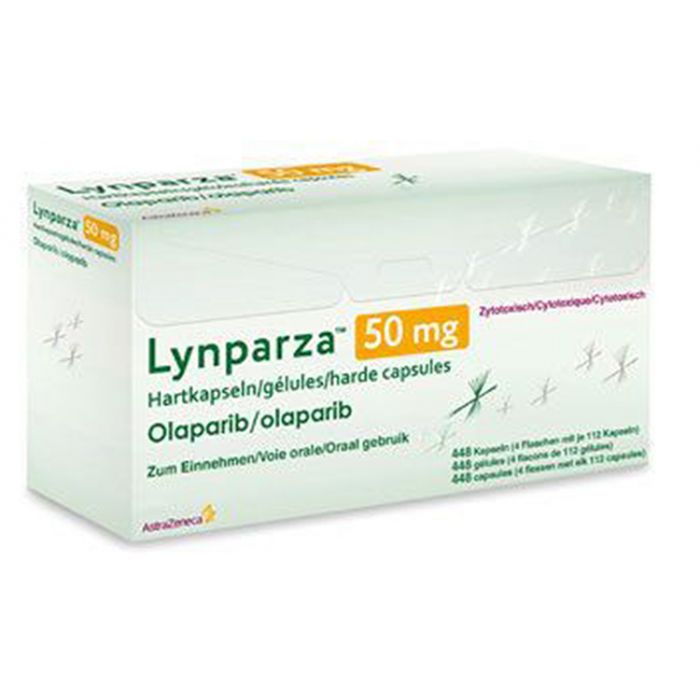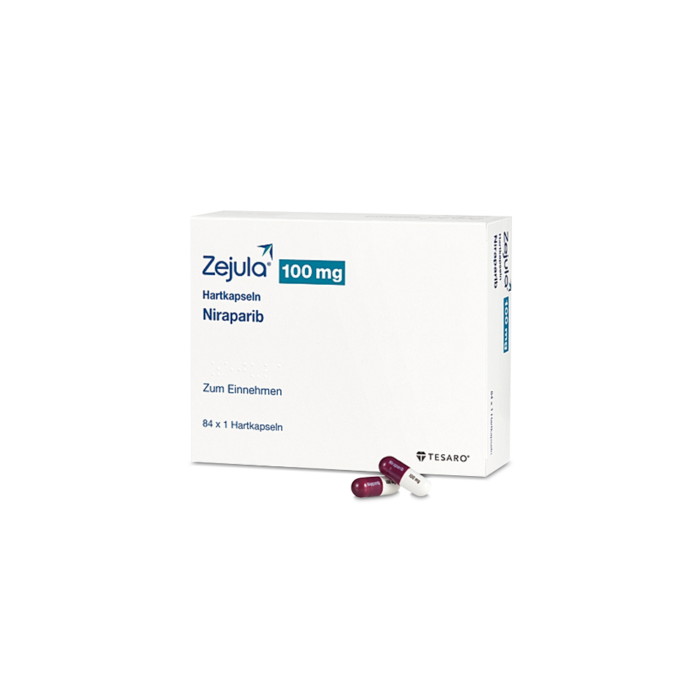New Ovarian Cancer Treatments 2022
Last updated: 18 March 2025

You can legally access new medicines, even if they are not approved in your country.
Learn howWhat is Ovarian Cancer?
Ovarian cancer forms in the tissues of the ovaries, the female reproductive glands. Ovaries are made up of 3 main kinds of cells: cells that cover the outer surface of the ovary, germ cells that produce the eggs, and cells that hold the ovary together and produce the female hormones estrogen and progesterone. Each type of cell can develop into a different type of tumour. Usually, ovarian cancers are differentiated into two classes: epithelial ovarian cancer (also referred to here as ovarian carcinoma), which arise from the ovary's surface cells, accounting for approximately 90 % of primary ovarian tumours; and non-epithelial ovarian cancer, from other tissues within the ovary. Most of these tumours are benign (non-cancerous) and never spread beyond the ovary. Benign tumours can be treated by removing either the ovary or the part of the ovary that contains the tumour. Malignant (cancerous) or low malignant potential ovarian tumours can spread (metastasise) to other parts of the body and can be fatal.1
What are Ovarian Cancer symptoms?
The symptoms of ovarian cancer are often easily mistaken for other common problems. Early stage ovarian cancers may produce symptoms in some cases, but in the majority of women symptoms don’t show up until the cancer has advanced. According to studies, these are the most common symptoms of ovarian cancer:2
- Bloating
- Pelvic or abdominal pain
- Difficulty eating or feeling full quickly
- Urinary symptoms (urgency or frequency)
Is there a cure for Ovarian Cancer?
The treatment for ovarian cancer depends on how far it has spread and other parameters related to the patient. The aim of the treatment is to cure the cancer, if possible. If the cancer is too advanced to be cured, treatment aims to relieve symptoms and control the cancer for as long as possible.
What are new Ovarian Cancer treatments?
There are several approved Ovarian Cancer treatments. Here are some of them:
Lynparza (olaparib)4
Lynparza (olaparib) is indicated a poly (ADP-ribose) polymerase (PARP) inhibitor for the treatment of people with ovarian, fallopian tube or primary peritoneal cancer with recurrent epithelial ovarian, fallopian tube or primary peritoneal cancer, who are in a complete or partial response to platinum-based chemotherapy. And for ovarian cancer in adult patients with deleterious or suspected deleterious germline BRCA-mutated (gBRCAm) advanced ovarian cancer who have been treated with three or more prior lines of chemotherapy.
Lynparza (olaparib) was approved by:
- The Food and Drug Administration (FDA), USA on December 19, 2014 with an accelerated approval for the treatment of adult patients with deleterious or suspected deleterious germline BRCA-mutated (gBRCAm) advanced ovarian cancer who have been treated with three or more prior lines of chemotherapy.
- The European Medical Agency (EMA), European Union on January 9, 2015, the Therapeutic Goods Administration (TGA), Australia on January 7, 2016, and by Medsafe, New Zealand on November 10, 2016 as a monotherapy for the maintenance treatment of adult patients with platinum-sensitive relapsed BRCA-mutated high grade serous epithelial ovarian, fallopian tube, or primary peritoneal cancer who are in response (complete response or partial response) to platinum-based chemotherapy.
- Health Canada on May 3, 2019:
1- As a maintenance treatment of adult patients with advanced BRCA-mutated high-grade epithelial ovarian, fallopian tube or primary peritoneal cancer who are in response (complete response or partial response) to first-line platinum-based chemotherapy. Patients must have confirmation of BRCA mutation (identified by either germline or tumour testing) before a Lynparza treatment is initiated.
2- As a maintenance treatment of adult patients with platinum-sensitive relapsed (PSR) BRCAmutated high-grade epithelial ovarian, fallopian tube or primary peritoneal cancer who are in response (complete response or partial response) to platinum-based chemotherapy.
Zejula (niraparib)5
Zejula (niraparib) is a poly (ADP-ribose) polymerase (PARP) inhibitor, indicated for the maintenance treatment of adult patients with recurrent epithelial ovarian, fallopian tube or primary peritoneal cancer who are in a complete or partial response to platinum-based chemotherapy.
Zejula (niraparib) was approved for the indications of recurrent epithelial ovarian, fallopian tube, or primary peritoneal cancer by:
- The Food and Drug Administration (FDA), USA, March 27, 2017
- The European Medical Agency (EMA), European Union, November 16, 2017
- The Health Canada, June 26, 2019
- The Therapeutic Goods Administration (TGA), Australia, July 1, 2019
Rubraca (rucaparib)6
Rubraca (rucaparib) is indicated as monotherapy for:
- The treatment of patients with deleterious BRCA mutation (germline and/or somatic) associated advanced ovarian cancer, who have been treated with two or more chemotherapies. Patients should be selected for therapy based on the FDA-approved FoundationFocus CDxBRCA test (Foundation Medicine Inc.). Approximately 15 to 20% of patients with ovarian cancer have a BRCA gene mutation.
- The maintenance treatment of adult patients with recurrent epithelial ovarian, fallopian tube, or primary peritoneal cancer who are in a complete or partial response to platinum-based chemotherapy.
Rubraca (rucaparib) was approved by:
- The Food and Drug Administration (FDA), USA:
On December 19, 2016, for the treatment of patients with deleterious BRCA mutation (germline and/or somatic) associated advanced ovarian cancer who have been treated with two or more chemotherapies.
On April 6, 2018, for the maintenance treatment of adult patients with recurrent epithelial ovarian, fallopian tube, or primary peritoneal cancer who are in a complete or partial response to platinum-based chemotherapy.
- The European Medicines Agency (EMA), EU, on May 23, 2018, for the treatment of patients with platinum sensitive, relapsed or progressive, BRCA mutated (germline and/or somatic), high-grade epithelial ovarian, fallopian tube, or primary peritoneal cancer.
If you are trying to access drugs for Ovarian Cancer that is approved outside of your country of residence, we might be able to help you access it with the help of your treating doctor. You can read more about the medicines we can help you access and their price below:
Why access treatments for Ovarian Cancer with everyone.org?
everyone.org is registered in The Hague with the Dutch Ministry of Health (registration number 16258 G) as a pharmaceutical wholesale distributor. We have helped patients from over 85 countries to access thousands of medicines including. With a prescription from your treating doctor, you can count on our expert team to safely and legally guide you to access Ovarian Cancer drugs. If you or someone you know are looking to access a medicine that is not yet approved where they live, we can support you. Contact us for more information.
References:
- Cancer.org
- Ocrahope.org
- Nhs.uk
- Lynparza (olaparib) - Thesocialmedwork.com
- Zejula (niraparib)- Thesocialmedwork.com
- Rubraca (rucaparib)- Thesocialmedwork.com
Disclaimer: This article is not meant to influence or impact the care provided by your treating physician. Please do not make changes to your treatment without first consulting your healthcare provider. This article is not intended to diagnose or treat illness or to influence treatment options. everyone.org is as diligent as possible in compiling and updating the information on this page. However, everyone.org does not guarantee the correctness and completeness of the information provided on this page.










